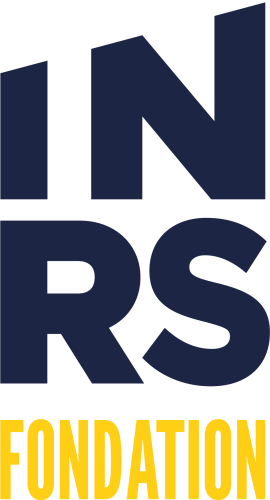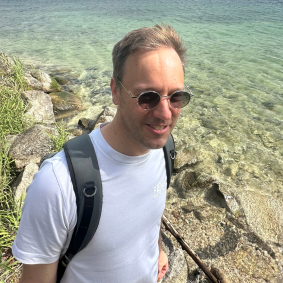François Blanchard
Ph.D. Energy and materials sciences, 2010
Master in Energy and materials sciences, 2003
Professor, École de technologie supérieure (ÉTS)
“The people we meet along the way may be the ones who will divert our trajectory without us even seeing it coming!”
François Blanchard began his training at INRS with a master's degree completed in collaboration with his employer at the time, Tecnar. This industrial partnership enabled him to deepen his knowledge of lasers, a technology in which INRS has unique expertise in Quebec. After facing a number of challenges in his career, François chose to return to INRS to develop new solutions, this time through a Ph.D. focused on terahertz radiation. He collaborates with renowned professors and plays a key role in the advancement of this technology.
For François, INRS is much more than just a place to study. The stimulating scientific environment and state-of-the-art equipment have given him invaluable academic freedom to explore a wide range of fields. “INRS has been a wonderful springboard, both in human and material terms,” he confides. During his studies, he became actively involved in student life, presiding over the student committee and helping to organize events that marked his university career, such as a méchoui bringing together students∙e∙s and employees∙s and helping to strengthen ties.
After completing his doctorate at INRS, François pursued his career with a three-year postdoctorate at Kyoto University in Japan, where he forged collaborations with world-renowned researchers in the field of terahertz radiation. He then completed a second post-doctorate at McGill University, before becoming a professor at the École de technologie supérieure (ÉTS). Despite his international background, François maintains close relations with INRS, regularly collaborating with his former colleagues on research projects.
François attributes much of his success to the encounters he has made along the way. For him, every interaction in a research environment can open unsuspected doors. He encourages current students to get involved and communicate with their peers, as every encounter in academia can lead them to discover new horizons. “The people we meet along the way can be the ones who will deviate our trajectory without us seeing it coming!” he asserts.
Today, François continues to build bridges between INRS and ÉTS, notably by collaborating on fundamental research projects that could influence tomorrow's technological innovations.
[Interviewed in October 2024.]

